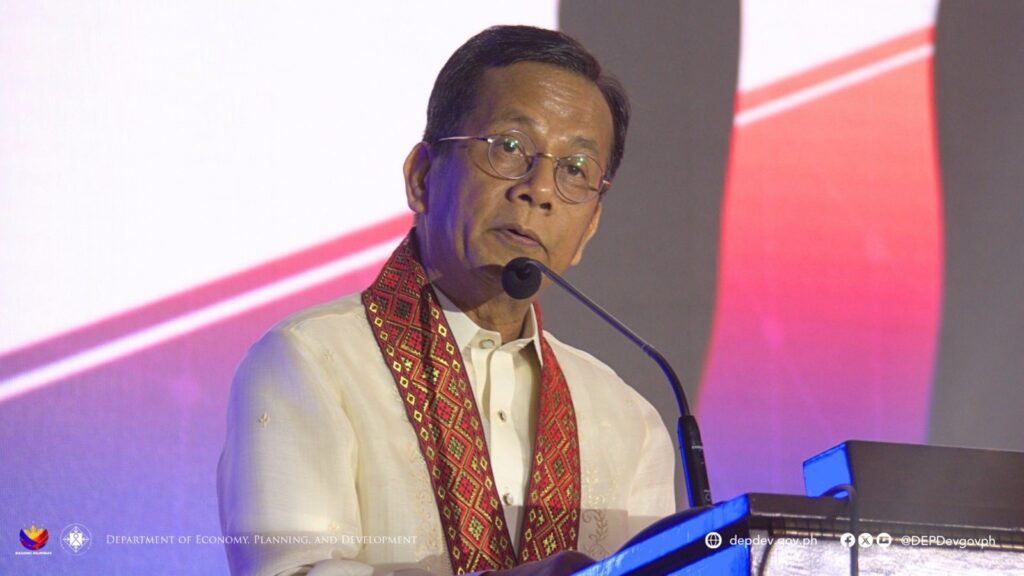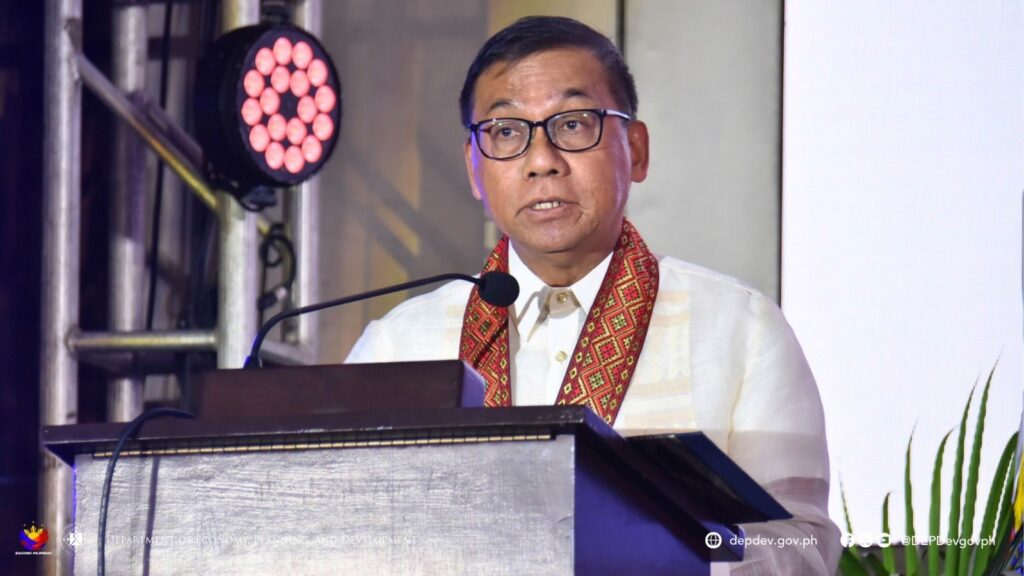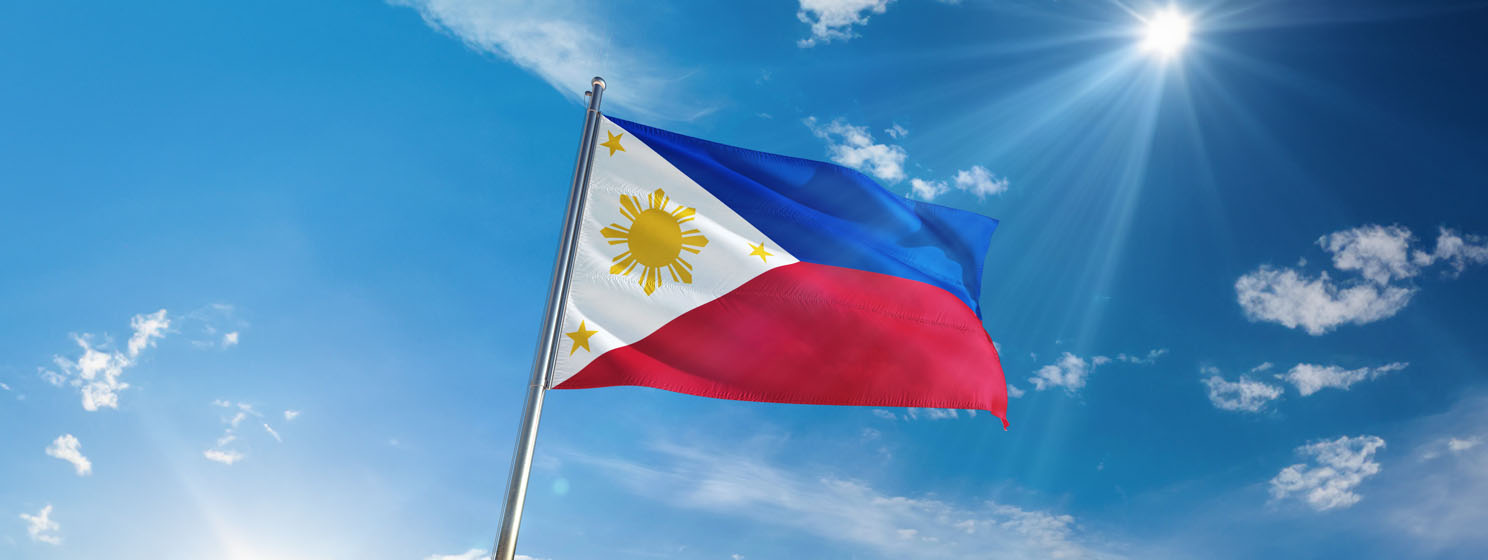|
Getting your Trinity Audio player ready...
|
The Philippine government is intensifying its efforts to establish a unified and dynamic innovation ecosystem, with a clear roadmap set for 2028. During the 2025 National Innovation Day celebration in April, Department of Economy, Planning, and Development (DepDev) Secretary Arsenio Balisacan outlined the country’s vision as part of its long-term development goal.
“With the National Innovation Council or the NIC’s launch of the National Innovation Agenda and Strategy Document 2023-2032 or the NIASD, we have charted a roadmap for establishing a dynamic innovation ecosystem in the country,” Balisacan said. He emphasized the country’s target of rising to the 43rd spot in the Global Innovation Index by 2028, from its current rank of 56th.

“To achieve our target of reaching the 43rd rank by 2028, we would need to accelerate our efforts in the following: First, providing a nurturing environment for basic research and development and knowledge creation; Second, supporting market-driven and customer-centered research and development; Third, scaling up technology adoption, utilization, and commercialization; And fourth, promoting a culture of innovation and entrepreneurship, as highlighted in the Philippine Development Plan 2023-2028 or the PDP,” he said.
The NIC, created under the Philippine Innovation Act, is tasked with coordinating this national effort. According to Balisacan, building the ecosystem requires strengthening research capabilities and increasing the number of skilled Filipino researchers, scientists, and engineers.
“Human capital investments are a top priority as we ramp up support to boost the number of Filipino scientists, engineers, and researchers and align ourselves with our peers in the region. We will reform our basic, technical-vocational, and higher education institutions and engage local and international Filipino experts,” Balisacan added.
Breaking barriers, empowering innovation
Balisacan also stressed the need to remove rigid policies that hinder innovation and emphasized the importance of enabling MSMEs to become globally competitive.
“The NIC will steer efforts to remove the barriers to innovation by updating policies that are too rigid and enable Filipino innovators to flourish and collaborate even as we celebrate specialization and expertise. Policies must also enhance the productivity and competitiveness of our micro, small, and medium enterprises or MSMEs and enable them to integrate seamlessly into global supply chains,” he said.He reported that since the enactment of the Philippine Innovation Act in 2019, the government has funded 38 innovative projects with a total budget of nearly PHP163 million ($2.9 million). These projects have targeted water access, food security, and energy challenges and helped open innovation facilities to a broader range of local actors.
“A whole-of-nation and whole-of-government approach is needed for innovation to flourish. We must lay the necessary foundations and advance the essential programs with the support of the academe, businesses, and our international and development partners,” Balisacan said, calling for a collaborative approach.
In what he called the “unboxing” of a new mindset, coined Filipinnovation, Balisacan urged Filipinos to dismantle outdated attitudes toward risk and embrace values that cultivate a spirit of creativity and critical thinking.
“In contrast, we must nurture, amplify, and celebrate those Filipino values which will breed an innovative and entrepreneurial spirit, such as the traits of empathy or malasakit, critical thinking or pagiging mapanuri, creativity or pagkamalikhain, imagination or pagiging maharaya, and the spirit of collaboration, or ang diwa ng bayanihan,” he said.
DOST pushes for national AI strategy
Parallel to these innovation goals, the Department of Science and Technology (DOST) spearheads a national strategy to harness artificial intelligence (AI) in ethical, inclusive, and relevant ways to everyday Filipino life. Secretary Renato Solidum Jr. unveiled the National AI Strategy for the Philippines (NAIS Ph) in his keynote message during the event.
“Building on these milestones and the momentum of a whole-of-government approach, it is now time to take the next bold step. To ensure that our efforts are strategic, inclusive, and future-ready, we are proposing a National AI Strategy for the Philippines or NAIS Ph,” Solidum said.

The strategy spans five key areas—workforce, infrastructure, innovation, ethics and policy, and deployment—set for phased implementation from 2024 to 2028. These areas will support AI applications in vital sectors, including agriculture, education, creative industries, smart cities, and national security.
“Ultimately, by 2028, we [DOST] envision a future where AI powers inclusive innovation, strengthens governance, uplifts communities, and drives globally competitive industries, building a sustainable, tech-enabled future for all Filipinos,” Solidum said.
Toward a collaborative AI ecosystem
Central to DOST’s AI roadmap is creating a Collaborative AI Ecosystem consisting of two foundational elements, the AI Factory and the AI Refinery.
The AI Factory will focus on preparing the groundwork— governance, policy, ethics, and workforce training—while the AI Refinery will connect academic institutions and private companies with real-world AI applications through intensified research and development.
“To improve course completion rates, we will encourage trainees to have a clear AI deployment plan before enrollment and work closely with organizations to ensure that newly acquired skills are directly applied in the workplace,” Solidum said, referring to the agency’s education initiative leveraging platforms like Coursera and SPARTA.
In addition to training and research, the DOST is also pushing the frontier of scientific computing. According to Solidum, the country is on track to increase its high-performance computing (HPC) capability by 26 times by 2028.
“A cornerstone of this effort is the establishment of a National HPC Center, complemented by new regional HPC sites that will bring advanced computing resources closer to researchers across the country,” Solidum said.
DOST also plans to localize AI adoption through its regional offices by deploying customized solutions to MSMEs. The AI Hub, or i-Hub, will match regional demands with AI-powered technologies using autonomous AI agents.
“These investments ensure the Philippines is not just participating but helping shape the future of AI and scientific computing,” he said.
Building the foundations of a future-ready Philippines
With the Philippines targeting 2028 as a pivotal milestone for national innovation and AI integration, the combined strategies of DepDev and DOST reflect a shared ambition: to build a research-driven, inclusive, and tech-enabled future.
By aligning efforts in education, research, infrastructure, policy, and industry engagement, the Philippine government aims not just to elevate the country’s innovation ranking but to ensure that development efforts translate into real, measurable benefits for Filipino communities.
In order for artificial intelligence (AI) to work right within the law and thrive in the face of growing challenges, it needs to integrate an enterprise blockchain system that ensures data input quality and ownership—allowing it to keep data safe while also guaranteeing the immutability of data. Check out CoinGeek’s coverage on this emerging tech to learn more why Enterprise blockchain will be the backbone of AI.
Watch | The Philippines startup boom: Highlights from Sinigang Valley Build Startup Festival

 02-24-2026
02-24-2026 




